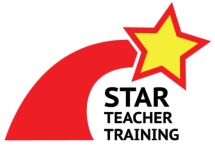You don’t need many materials to have great EFL activities with young learners. Sometimes all you need is a board and some chalk and you can play games like Spelling Dictations. This activity is easy to organize and it involves everyone in your class. This EFL game is also a great way to practice an important skill young students will need for taking tests such as the Cambridge Pre A1 Starters Exam.
Related Post: Increasing ESL Participation Rates
How to Play Spelling Dictations
First you need to establish the set of vocabulary you’re using with the activity. The students need to know what they’re working with, otherwise it’s too difficult for them. Because of this, Spelling Dictations goes great after you’ve introduced the target vocabulary and written it all up on your board.
The next stage is to tell your students to listen to you and call out the word you’re spelling. It’s helpful to raise one arm and tell students to give their answer only after you’ve dropped your arm.
Slowly spell out a word with your arm raised. Once students know the word and you lower your arm they can either shout it out, raise their hands to answer, or write their answer on a white-board.

Praise your students for getting it correct and then move on to the next word. You can spell words faster and faster as your students get more used to the activity.
Adaptations for Spelling Dictations
Writing: A great way to boost active participation is to divide students into pairs or small groups. You can give them white-boards or handouts to write their answers on. Students should take turns writing so everyone gets to play. You should set up a routine to remind them to do so, or else one student will usually take over.
Flashcard Safari: Instead of getting students to call out the words, you can also put your flashcards around the room. As you spell out the word the students can look around the room and point at the correct card.
Related Post: This EFL Listening Game Involves Everyone: Flashcard Safari
Bingo: You can also combine Spelling Dictations with another EFL game, Bingo. Students can listen and find the words they’ve already written down on their Bingo cards.
Related Post: Bingo is an ESL Listening Activity for All Seasons
Student Leaders: Once students are old enough and confident enough you can also take volunteers from the class to come up and spell words as well. A lot of kids find it daunting to choose which word to spell, so you can support them by offering a suggestion.
Speed Speak: Students can also take the lead by doing Spelling Dictations in small groups with Speed Speak. One student can raise their arm and spell out a word. Once they finish and drop their arm their group-mates can say the word. Whoever is the fastest and correct gets to be the new speller.
Related Post: Get ESL Students Speaking with Speed Speak & Listen Quick
Extra Tips for Spelling Dictations
ABC Song: Young students often need a quick refresher on the alphabet before starting this EFL activity. Start by singing the ABC song and writing the alphabet on the board. You can then point to letters out of order and ask which each is.
This is important because especially in Grade 1, but even in Grade 2, many children can sing the alphabet song but they may not be confident with the individual letters presented out of order. Pointing to key letters randomly and asking what they are works as a great primer, especially for weaker students.
Visible List: Make sure the vocabulary list is clear and easy for everyone to see. This scaffolding is really useful early in the activity, especially for weaker students. You can increase the difficulty in later rounds by erasing the list.
What other spelling games for young learners do you know? Share in the comments below!






